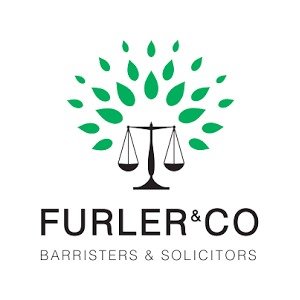Best Foreclosure Lawyers in Clare
Share your needs with us, get contacted by law firms.
Free. Takes 2 min.
Free Guide to Hiring a Real Estate Lawyer
List of the best lawyers in Clare, Australia
About Foreclosure Law in Clare, Australia
Foreclosure is a legal process where a lender attempts to recover the balance of a loan from a borrower who has stopped making payments by forcing the sale of the asset used as collateral for the loan. In Clare, Australia, this often relates to residential property mortgages. Although Australia has national laws governing mortgages and foreclosure, certain details can differ from state to state.
Why You May Need a Lawyer
If you're facing foreclosure, it's often a good idea to seek legal counsel. A lawyer can help you understand your rights and options, and could potentially help you save your property. Common scenarios where you may need a lawyer include: when a lender is attempting to foreclose on your property, when you are struggling with mortgage repayments, if you believe there has been a violation of the terms of your agreement, or if you want to dispute the foreclosure action.
Local Laws Overview
Foreclosure law in Clare follows the national guidelines set in place by Australian law. Specifically, the National Consumer Credit Protection Act 2009 and the Australian Securities and Investments Commission Act 2001 provide protections to borrowers who are in default. That said, it is imperative to understand that lenders must provide borrowers who default on their mortgage with a default notice and a certain period for the payment of the default before enforcement proceedings can be initiated. It's highly encouraged to seek legal advice promptly if you receive a default notice or court proceedings relating to a foreclosure of your property.
Frequently Asked Questions
What is the process of foreclosure in Clare, Australia?
A lender must send a default notice to the borrower specifying the default and providing the borrower with at least 30 days to remedy it. If the borrower does not remedy the default, the lender can begin court proceedings to recover the mortgaged property.
Can I keep my home after foreclosure proceedings have begun?
Yes, depending on the specifics of the situation, there may be various ways for you to negotiate and avoid foreclosure, such as by modifying the loan, refinancing, or selling the property to repay the debt.
Can a lawyer help me stop a foreclosure?
Yes, a foreclosure lawyer can help you negotiate with your lender, fight the foreclosure in court, or help you file for bankruptcy, amongst other things.
What happens if the property sells for less than the owed amount?
If the foreclosure sale does not cover the full amount of the debt, the lender may be able to claim a deficiency judgment for the balance.
Can I get my property back after it has been sold?
Unlike some places, Australia does not have a statutory 'right of redemption', which means once a foreclosure sale has occurred, the borrower cannot reclaim their property.
Additional Resources
Here are some resources you may find helpful: The National Debt Helpline, the Australian Financial Security Authority, the Australian Securities and Investments Commission (ASIC), and local legal aid organizations for free or low-cost advice.
Next Steps
If you require legal assistance, it is advisable to consult with a lawyer experienced in foreclosure law. Be prepared to provide all relevant documentation such as mortgage agreements, any received default notices, copies of correspondence with your lender, and financial information. It's important to act proactively to achieve the best possible outcome.
Lawzana helps you find the best lawyers and law firms in Clare through a curated and pre-screened list of qualified legal professionals. Our platform offers rankings and detailed profiles of attorneys and law firms, allowing you to compare based on practice areas, including Foreclosure, experience, and client feedback.
Each profile includes a description of the firm's areas of practice, client reviews, team members and partners, year of establishment, spoken languages, office locations, contact information, social media presence, and any published articles or resources. Most firms on our platform speak English and are experienced in both local and international legal matters.
Get a quote from top-rated law firms in Clare, Australia — quickly, securely, and without unnecessary hassle.
Disclaimer:
The information provided on this page is for general informational purposes only and does not constitute legal advice. While we strive to ensure the accuracy and relevance of the content, legal information may change over time, and interpretations of the law can vary. You should always consult with a qualified legal professional for advice specific to your situation.
We disclaim all liability for actions taken or not taken based on the content of this page. If you believe any information is incorrect or outdated, please contact us, and we will review and update it where appropriate.








